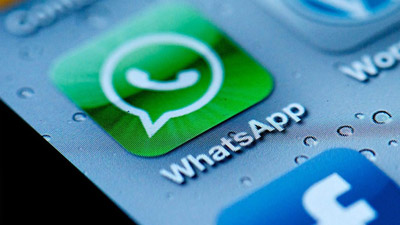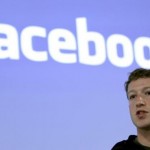WhatsApp to Drop Subscription Fee

WhatsApp will scrap its subscription fee and explore ways that businesses can interact with the mobile messaging service’s users to make up for the lost revenue, its co-founder said Monday.
The app previously had charged an annual renewal fee of $1 for all users after their first year. However the service’s co-founder, Jan Koum, said Monday at the Digital Life Design conference here that his company will start removing the fees from different versions of the app in coming weeks because they aren’t practical.
The move is a shift for Facebook Inc. and WhatsApp—whose booming subscriber growth, in part based on its ad-free model, went some way to justifying the $22 billion Facebook paid for it in 2014. When the deal was first announced, WhatsApp boasted 450 million users.
Facebook founder and Chief Executive Mark Zuckerberg previously said he expected WhatsApp to contribute to the company’s bottom line, but not until it reaches about a billion users. Mr. Koum said Monday that WhatsApp has nearly reached that mark, but there is no deadline to start generating revenue. A Facebook representative wasn’t immediately available to comment.
During the conference, Mr. Koum said he was abolishing the subscription fee because it “really doesn’t work that well in a lot of countries, and we just don’t want people to think that their communications…with the world will be cut off.” Many users, he noted, don’t have a debit or credit card to let them to pay for the service.
The merger with Facebook has allowed WhatsApp to focus on growth and on building its product, rather than on making sure it brought in money, Mr. Koum said. “We didn’t spend a lot of time over the past two years putting work and effort into the subscription model,” he said.
In an off-stage interview, Mr. Koum said the decision “wasn’t necessarily about making money, but making sure we build something that is useful…to people.”
Facebook executives, he said, agreed with that logic.
WhatsApp said it would start testing new business models this year that would allow organizations to communicate with individuals with the user’s consent.
Facebook Messenger, the social media firm’s other mobile messaging service, already uses a similar facility where businesses can communicate with users.
The idea would be to allow companies such as banks to notify customers of fraudulent transactions or airlines to alert travelers about delayed flights.
“It’s still very early stages,” Mr. Koum told the crowd. “But we have to think about what kind of features [we can add so that] companies like American Airlines or Bank of America can communicate with consumers efficiently through an app like WhatsApp.”
Mr. Koum said the so-called commercial-participation model wouldn’t introduce third-party advertisements or spam.
WhatsApp also has drawn worldwide attention with reports alleging that the terrorists in the Paris attacks on Nov. 13 used the encrypted service, among others, to communicate with one another. That has fueled the debate about whether companies should be allowed to offer ultra-secure messaging tools.
“It’s incomprehensible to me that people are willing to have this debate…it’s not a debate,” Mr. Koum said in the interview. He called the notion of loosening the messaging services’ security so governments could access the communications “very backwards.”
“It’s just frustrating how many politicians don’t necessarily realize what it is they’re asking for because there’s no way to build a backdoor that only good guys will use,” he said.
Hackers and rogue states would discover the backdoor and it would allow criminals to steal people’s data, Mr. Koum continued. “If anything, people should be asking for more encryption, for more digital security to protect their data—not less.”
Source: WSJ – WhatsApp to Drop Subscription Fee



























